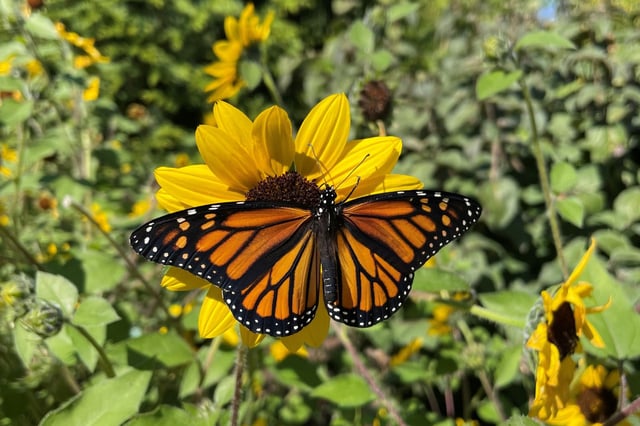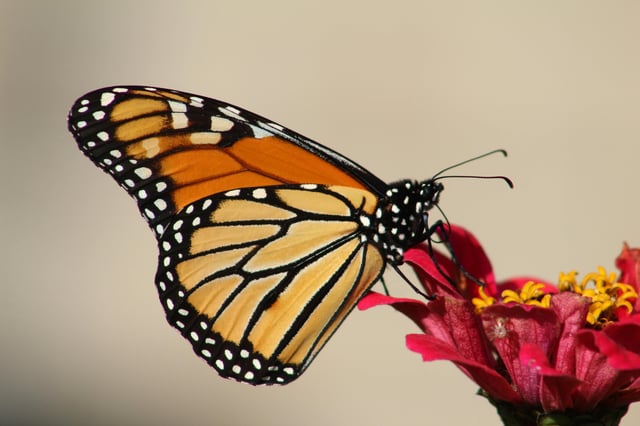Overview
- In Fedorka et al.’s Royal Society Open Science study, monarchs exposed to 23°C during simulated migration exited diapause early and experienced an 88% higher male mortality risk plus a 28% higher overwintering death rate.
- Guerra et al.’s PLOS One experiments revealed that cold exposure recalibrates both the magnetic and sun compasses, suggesting that milder winters could prevent proper spring navigation.
- Researchers collected nearly 500 wild monarchs for temperature-controlled incubator and magnetic-field trials to pinpoint how seasonal warming affects lifespan and orientation.
- Scientists stress these laboratory findings require field validation to determine the frequency and strength of these temperature-driven responses in wild populations.
- These mechanistic threats compound habitat loss, milkweed decline and parasite pressures and could drive the permanent collapse of eastern North American migratory populations if confirmed in nature.

